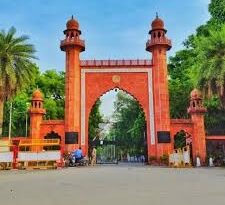Haryana’s Prevention of Public Gambling Act, 2025
Introduction
The enactment of the Haryana Prevention of Public Gambling Act, 2025 (“the HPPGA” or “the Act”) represents a major milestone in the State’s efforts to regulate the gambling and gaming industry. The main objective of the Act is to crack down on all forms of gambling, both offline and online, including sports betting and any type of match fixing or spot fixing in sports within the state of Haryana.
As more states in India are using their legislative authority to regulate gambling and online betting,Haryana has become the latest state to join this trend following Chhattisgarh, Tamil Nadu, and Karnataka.This Act prohibits all forms of gambling, including online platforms accessible in Haryana, regardless of physical presence in the state.
Key Provisions
The HPPGA,2025 significantly expands the scope of what is considered punishable gambling activity. While earlier laws mainly addressed physical gambling houses and public gaming, this Act brings online betting, match-fixing, opinion-trading apps, and private betting networks within its fold.
❖ First-time offenders involved in public gambling, betting, or match-fixing can face 3 to 5 years in prison and a fine of ₹5 lakh or more.
❖ Repeat offenders may face 5 to 7 years imprisonment and higher fines, with the aim of discouraging habitual or organized gambling.
❖ Individuals running or financing gambling operations, either offline or online, are subject to 3 to 7 years in prison, and fines up to ₹5 lakh.
❖ The law empowers police to act without warrants, including search, seizure, arrest, and confiscation of property or money gained through illegal gambling.
This Act, till date is the most rigid anti-gambling act in any state of India.
Legal and Constitutional debates
While the law is welcomed by those concerned about match-fixing, youth gambling addiction, and unregulated betting syndicates, it has also sparked legal debates:
❖ Freedom of trade (Article 19(1)(g)): Can the state ban platforms that argue they offer skill-based services?
❖ Right to privacy and due process: With police granted powers of warrantless search and arrest, is there a risk of misuse?
❖ Federal inconsistency: While Haryana has banned certain online gambling activities, other states allow similar platforms, raising questions about regulatory consistency across India.
This Act also draws comparisons with similar efforts in Tamil Nadu and Karnataka, where bans on online gaming were struck down or challenged in court, with the judiciary emphasizing the distinction between games of skill and games of chance.
Conclusion
The Haryana Prevention of Public Gambling Act, 2025 is a significant legislative move reflecting the increasing focus on online gambling in Indian states. It presents an opportunity to regulate and improve betting practices while balancing innovation. The Act’s impact as a model or cautionary example will hinge on court interpretations and fair enforcement.





